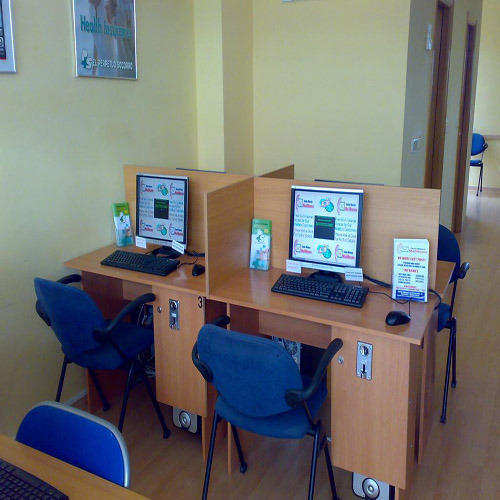The first cyber cafe was opened in 1994 by Pritish Nandy, an acclaimed poet, film producer, and politician. Located in a hotel in Mumbai, this cyber cafe quickly became the most popular spot for internet users. Today, cyber cafes are available 24 hours a day, seven days a week. In addition to offering Internet services, Cyber Cafes also offer online application services. And they’re regulated.
Internet cafes help bridge the ‘digital divide’
Internet cafes provide affordable access to computers and the internet, especially in developing countries where few people own computers. These establishments may be a way to bridge the ‘digital divide’, as they offer teenagers the chance to learn computer literacy skills and stay up to date with the needs of the 21st century. Internet cafes have a number of uses, from providing internet access for educational purposes to promoting community development.
The digital divide is a qualitatively new phenomenon, but it has been a resurgence of age-old social and economic discrepancies. Some sociologists see it as a modern extension of chronic unemployment and poor access to basic social services. But it is important to recognize that even with the availability of inexpensive computers and Internet access, the digital divide still exists. Some argue that the digital divide may exaggerate the economic and social divisions that still exist within U.S. society.
They provide online application services
A cyber cafe is a place where people can use a computer to complete online applications. Located at the corner of the city’s most busy streets, cyber cafes are a great option for working and meeting friends. A cyber cafe provides many benefits, including free Wi-Fi, a friendly atmosphere, and computer services. The first cyber cafe was opened in 1994 by Pritish Nandy, a prominent poet, film producer, and politician.
Choosing the right location for your cyber cafe is crucial. It must be in a location with high traffic volume and good visibility. It should also be close to educational institutions, entertainment centers, and youth gathering places. Choosing the right location also means considering the aesthetics of the cyber cafe. The building must be well visible and accessible to customers. Online applications are very popular these days, so choose a location that’s both attractive and easy to find.
They are open 24 hours
A cyber cafe is a place to stay online. There are a variety of benefits for patrons. Cyber cafes are open twenty-four hours a day, which makes them very convenient for people with limited time or money. In addition to providing access to the internet, they can also offer electronic sales, pre-event testing, and computer upgrades. In addition to offering access to the internet, cyber cafes often have snack refrigerators and ample plug points for those who spend a lot of time online.
Choosing an ISP is critical. Choose a service that can keep up with demand. Internet service providers are not cheap. You should consider the quality of the service versus price before committing to a provider. You can choose a lower-priced ISP, but make sure that it offers market-leading speeds. Patrons will appreciate the consistency and speed of the service you offer. A good provider will also offer a backup plan.
They are regulated
While many states and jurisdictions do not regulate cyber cafes, some have very strict requirements for their operations. Businesses with gaming licenses must display information about gambling addiction and the hourly rate must be below the state’s maximum allowable limit. Cyber cafes serving food must comply with state health codes, and those that sell alcohol or cigarettes must abide by tobacco laws. Businesses must also limit sales to people of legal drinking age.
Internet cafes began in East Asia, where their popularity skyrocketed in the 1990s. In Korea, young men flocked to play online games. But in China, the trend took a different turn. In 2002, a group of young boys burnt down a popular internet cafe in Beijing, killing 24 people. Since then, Chinese government began heavily regulating internet cafes. As the popularity of cyber cafes spread across the world, a few countries have begun to regulate their operations to ensure the safety of their patrons.
READ MORE:Y2mate
